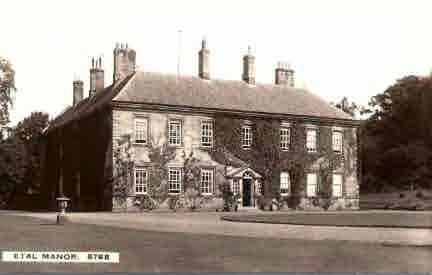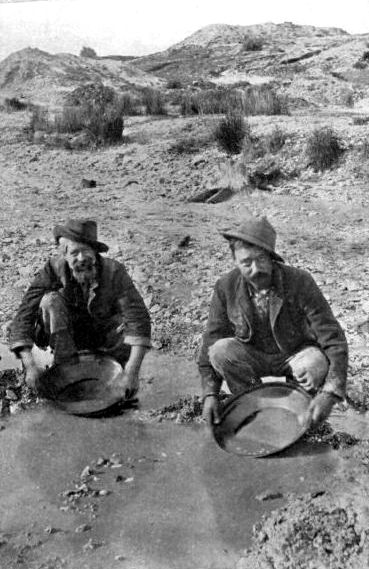
WAR HOSPITAL SUPPLY DEPOT
DEMOBILISATION TEA
The Berwick-on-Tweed War Hospital Supply Depot was closed on Friday, 21st March. It is exactly three years ago since Berwick decided to start a Surgical Branch of Queen Mary’s Needlework Guild, Central Depot of which was in London. The title of this Depot was later changed to The St. Marylebone War Hospital Supply Depot, when Queen Mary resigned and handed over the duties as President to H.R.H. Princess Beatrice.
The idea of a depot in Berwick was first launched at a Public Meeting held in the Council Chamber on March 24th, 1916, where it met with enthusiastic support. A subscription list was opened to gather the necessary funds for the purchase of materials, etc. Premises in Bridge Street, at the head of “Sally-port,” were secured, and eager, willing “probationers,” set to work to scrub.

An early photograph of the Sally Port, where the Berwick Branch of the ‘Surgical Branch of Queen Mary’s Needlework Guild’ secured their premises in 1919. © Berwick Record Office.
They scrubbed floors, paint, everything scrubable, cleaned windows, and soon all was ready for the opening day on 14th April. Over 70 members joined, the subscription fee being 2s 6d per head. This money, together with a weekly subscription of 6d per member, was the depot’s only source of revenue until 1917, when the increase in the cost of material rendered it necessary to appeal to the public for money to carry on the work.
BERWICK LAD’S TRAGIC END
A tragic occurrence took place on the Berwickshire Branch of the North British Railway near Edrom on Monday, when Charles Morrison (19) a fireman employed by the N.B.R., and son of Mr Morrison, Weatherly Square, Berwick, met his end by his head coming in violent contact with a bridge over the line.
The train had left Edrom station and was proceeding on its way to Duns when the unfortunate lad for some reason or other mounted the tender of the engine. Evidently he had misjudged the distance to the bridge over the line near Crumstane for his head caught the crown of the arch as the engine passed through. Death was instantaneous.
The news of his death has caused profound gloom in railway circles, where the deceased lad was held in respect for his genial disposition. It is not long since he took up duty as a fireman. The deepest sympathy goes out to the family in their sorrow.
SUICIDE AT MILFIELD
Mr Hugh J. Percy, Deputy Coroner for North Northumberland, held an inquest at Milfied, Wooler, on the 20th March, on the body of Richard Lee, aged 48 years, formerly a farm labourer at Milfield.
Jane Fairbairn, widow, of Milfield, and mother of the deceased, stated that her son had suffered some paralysis for the past two years, and has not been able to work, and had at times been depressed about it. Early on the morning of Saturday, the 15th, he went out of the house, having just got out of bed, and he did not return. His body was found the following day by John Coutts, a quarryman, who, when out for a walk by the side of the river Till, saw the body in the water.
P.C. Sanderson, of Ford, gave evidence, saying he received information from Coutts, and proceeded to the river, where he found the body entangled in some bushes. The water at the foot was about 6 feet deep. He got the body out, and it was identified as that of deceased.
After hearing the evidience, a verdict was returned of suicide whilst temporarily insane.
LOCAL NEWS
On Friday, March 21st, a draft of 150 men from the 1st K.O.S. Borderers Depot left Berwick for Dumfermline. The band from the barracks accompanied the men to the station, where a good crowd of people had assembled to give them a hearty send off.
The Army and Navy Recreation Rooms, Hide Hill, which have been open since March 1915, are to be closed on Saturday 5th April. The percentage of men stationed in the town is now very small compared with the past four years and it is felt that the need for this valuable institution no longer exists.
SALE OF WOOLER AND GLANTON PROPERTY
An important sale of property was held in Newcastle this week, when Mr Robert Donkin, auctioneer of Rothbury, disposed of property owned by Mr G. P. Hughes, Middleton Hall, Wooler, as under:-
Bidding commence at £800 for the Anchor Inn, a fully-licensed and free house at Maiden Knowe, Wooler, which was eventually sold for £1,300.
The small holding, Wand House, near Wooler, comprising a cottage, with stable and garden, and about four acres of grass land, let on an annual tenancy at a rental of £12, commenced at £300, and was sold for £430.
Three cottages, with garden ground, at Tenter Hill, producing a net annual rental of £28, commenced at £400, and was bought at £500 by Mr Nicholson of Monkseaton.
Mrs Frazer bought for £200 the garden ground situated at the rear of the Black Bull Hotel, Wooler. There are about 1,556 square yards, with stables and coach-house, let on a building lease for 29 years, from November 11th, 1910.

The Black Bull Hotel, Wooler at the turn of the twentieth century can be seen on the left of this photograph painted white with a cart outside on the road. In 1919 Mrs Frazer bought the rear garden area at auction for £200. © Berwick Record Office, BRO 426-1228.
The Queen’s Head Hotel, Glanton, comprising dining room, smoke room, bar, five bedrooms, long room, kitchen, two stables, coach-house, byre, etc., and vegetable garden, and 2¼ acres of land let at an annual rental of £70, was started at £1,000, and was sold at £1,700 to Mr Hare, for the Alnwick Brewery Company.
The accommodation holding, “The Dovecote Fields,” Glanton, comprising 500 acres of old grass pasture, let on a ten years’ lease (expiring 1922), at a rental of £120, started at £2,500, and was sold for £3,100, to Mrs Mary Joicey, of Linhope.
MAGDALENE FIELDS GOLF CLUB
Devotees of the Royal and Ancient Game will be glad to know that Berwick’s Town Club is to be re-opened after having been closed since the Spring of 1917. Preparations are being put underway, and it is hoped to have the course ready for play by the Easter holidays.

The plan of the course has not yet been decided upon, but it is the general opinion that a nine-hole course to begin with would be a wise thing. This does not, however, necessarily mean the old nine holes that constituted the course before it was extended in 1915. In planning out the course, the question of grazing, which is such a valuable financial asset, will have to be studied. The question of funds will also be a big item. In addition to the high rental, a further tax, which it is expected will amount to nearly £70 per annum, will have to be met, as the ground is being used for sports and not agricultural purposes.



